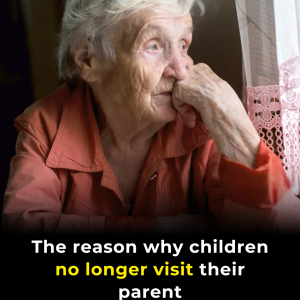
We often imagine kind people as socially magnetic—surrounded by friends, invited everywhere, always in the loop. Yet, in reality, some of the kindest individuals are the most solitary.
You may know someone generous, gentle, and emotionally intelligent, but rarely seen in large groups or social circles. Why would people so good-hearted sometimes be overlooked?
The truth is, kind people often carry traits that set them apart. They live with emotional depth that doesn’t always fit casual social habits. They’re intentional, self-aware, and uninterested in shallow connections.
Their presence isn’t loud, but steady and calming. They offer thoughtfulness and empathy, while protecting themselves from emotional chaos. These qualities don’t make them popular, but they do make them meaningful.
Let’s look at the quiet patterns common among kind individuals who keep only a few close bonds.
If you see yourself here, know it’s not weakness—it’s strength.

1. They’re Deep Listeners, Not Loud Talkers
Kind people don’t fight for attention. They listen fully, not waiting for a pause to speak but to truly understand. Their thoughtful responses make them wonderful conversationalists, though in noisy groups, they’re often overlooked. Loudness dominates, while quiet listeners can be mistaken for distant—even when their gift is making others feel deeply seen.
2. They Avoid Gossip and Drama
Gossip might bond some groups, but kind people see it as toxic. They don’t enjoy criticism or rehashing conflicts, so they quietly step away from such circles. This choice for peace can make them seem detached, but really, it helps them maintain healthier, more genuine friendships.
3. They Set Quiet Boundaries
Many assume kindness means constant availability. But truly kind people respect themselves, too. They give when they can, but calmly say no when limits are crossed. They don’t explain or argue; they simply withdraw. Some misinterpret this as coldness, but it’s how they keep their kindness authentic.
4. They’re Empathetic to a Fault
Kind people absorb others’ feelings, often carrying the weight of someone else’s pain. Their empathy makes them wonderfully supportive, but also emotionally exhausted. That’s why they need alone time—not from disinterest, but to survive. They can’t be everywhere for everyone, all the time.
5. They Don’t Seek Validation
You won’t find them chasing praise or attention. They act with humility, showing up consistently because it’s who they are—not to be noticed. In a world that rewards charisma, this quiet strength can make them seem invisible. Yet those who look closer discover reliability, humor, and depth.
6. They’re Selective With Energy
Kindness doesn’t mean unlimited access. These individuals protect their energy by being discerning. They invest deeply in a few real connections instead of spreading themselves thin. They’re loyal, but cautious, because not everyone deserves their warmth.
7. They Attract Takers
Generosity often draws those who only receive. Kind people notice when others vanish once the giving stops. They don’t stop being kind, but they do stop being endlessly available. This shift may make them harder to reach, but it protects their emotional balance and ensures reciprocity in relationships.
8. They Value One-on-One Connections
Large groups feel overwhelming or hollow. Instead, they thrive in intimate conversations, where authenticity matters more than performance. This preference can isolate them in extrovert-centered cultures, but it gives their closest relationships remarkable depth.
9. They’d Rather Be Alone Than Fake It
Kind individuals won’t compromise authenticity for social gain. They won’t pretend to enjoy spaces that feel false. Skipping events others deem important may make them seem aloof, but really, they’re choosing integrity. Their solitude isn’t loneliness—it’s alignment. When they do connect, it’s genuine, rare, and deeply fulfilling.

What Truly Matters
Kindness doesn’t always equal popularity. The more sincere and emotionally intelligent someone is, the fewer friendships they may keep. This isn’t failure—it’s wisdom shaped by experience and self-respect.
These behaviors don’t mean rejection, but strength. Kind people may not be surrounded by crowds, yet they radiate quiet power, building lives on quality, not quantity.
If you see yourself in these patterns, remember your kindness still matters—even when unnoticed. And if you know someone like this, don’t mistake their quiet for disinterest. You may be in the presence of something rare: someone kind by nature, wise by choice, and brave enough to prefer peace over popularity.




